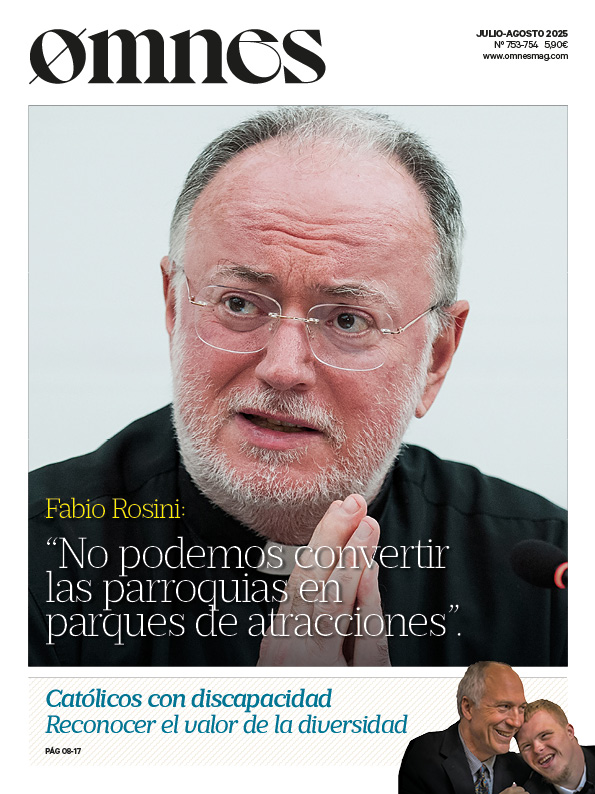By John Mulderig (OSV/Omnes)
Directors, both famous and unknown, mined the scriptures for stories they could bring to the big screen, with results ranging from the reverential to the exploitative.
Today, many of these films are available on streaming. With Easter approaching, the faithful can take a look at this collection of old movies. Below are brief reviews of some biblically themed productions.
"Ben-Hur" (1959)
Director William Wyler's classic Hollywood epic follows the Jewish prince who gives the film its title (Charlton Heston) after being betrayed by his childhood Roman friend (Stephen Boyd) and subjected to great misery until he finally gets retribution for all his suffering. The conventional melodrama of the narrative is transformed by the grandeur of its spectacle, especially the chariot race, and by the moving performances of its protagonists, who manage to overcome the clichés and stereotypes of the story.
"The Bible" (1966)
Six episodes of the Genesis (Creation, Adam and Eve, Cain and Abel, Noah, the Tower of Babel and Abraham) are performed as literally as they were written, leaving much of their interpretation to the viewer. John Huston directs, narrates and plays the role of Noah in this reverent but entertaining show. George C. Scott, as Abraham, takes the award for best performance among a cast that includes Ava Gardner, Richard Harris, Ulla Bergryd and Michael Parks.
"Spell of God" (1973).
Film version of a musical loosely based on the Gospel according to St. Matthew, with an off-Broadway cast featuring Victor Garber as Christ and David Haskell as John the Baptist and Judas. What makes the film so exciting is that director David Greene turns New York City into a giant stage, used in surprising ways to present the parables in imaginative skits, many of which serve as springboards for irresistible tunes such as "Day by Day" and "God Save the People!"
"The Gospel according to St. Matthew" (1966).
The simple Italian dramatization of the evangelist's account of the life of Jesus and his message of salvation manages to place the viewer uniquely in the Gospel events, avoiding the artificiality of most biblical cinematic epics. Director Pier Paolo Pasolini is completely faithful to the text, employing the visual imagination necessary for his realistic interpretation.
"The Greatest Story Ever Told" (1965).
While not the greatest film ever made, director George Stevens' vision of the Gospel presents a coherent and traditional view of Christ as God incarnate. The film, despite its Hollywood epic scale, features fine performances, a tasteful and realistic script, superb photography, and Max von Sydow's believable portrayal of Christ is the essential element of its success.
"King of kings" (1961)
This solid cinematic spectacle presents the life of Christ in the historical context of Jewish resistance to Roman rule. Jeffrey Hunter, somewhat awkwardly, plays the title role, although more effective are Siobhan McKenna as his mother, Robert Ryan as John the Baptist, Hurd Hatfield as Pilate, Rip Torn as Judas and Harry Guardino as Barabbas. Directed by Nicholas Ray, the script focuses on the political instability of the time, but treats the Gospel story with reverence, albeit with more dramatic freedom than some would find acceptable. The OSV News rating is L: limited adult audiences, films whose problematic content would be disturbing to many adults.
"The Robe" (1953)
Reverent but Gospel-era heavy story, based on Lloyd C. Douglas' novel, about a Roman tribune (Richard Burton) who, gambling, wins Christ's robe at the crucifixion, but then fears the garment's power to bewitch him, subsequently becoming a Christian martyr in Rome. Directed by Henry Koster, the fictional story is sincere, but dramatically unconvincing in its plot and performances, which range from stiffness to stagey pettiness, with the resulting inspiration more on the viewer than on the screen. Stylized violence and veiled sexual references.
"The Ten Commandments" (1956).
This epic production by director Cecil B. DeMille, less an inspirational story based on biblical sources than a dramatic vehicle with a sense of history, offers spectacular recreations, excellent technical effects and impeccable acting by an exceptional cast, including Charlton Heston as Moses, Yul Brynner, Anne Baxter, Edward G. Robinson and many other stars of the era.
"The Passion of the Christ" (2004)
The vision of Mel Gibson about the last hours of Jesus of Nazareth becomes an intense and harrowing cinematic experience, centered on the physical and spiritual suffering of the protagonist (Jim Caviezel). The narrative, although familiar, is transformed by the visual rawness and extreme realism with which the Stations of the Cross are portrayed, where the pain takes on an almost mystical tone. The staging, the fidelity to Aramaic and Latin, and the emotional power of the images make this biblical drama a work that is as controversial as it is deeply moving.








